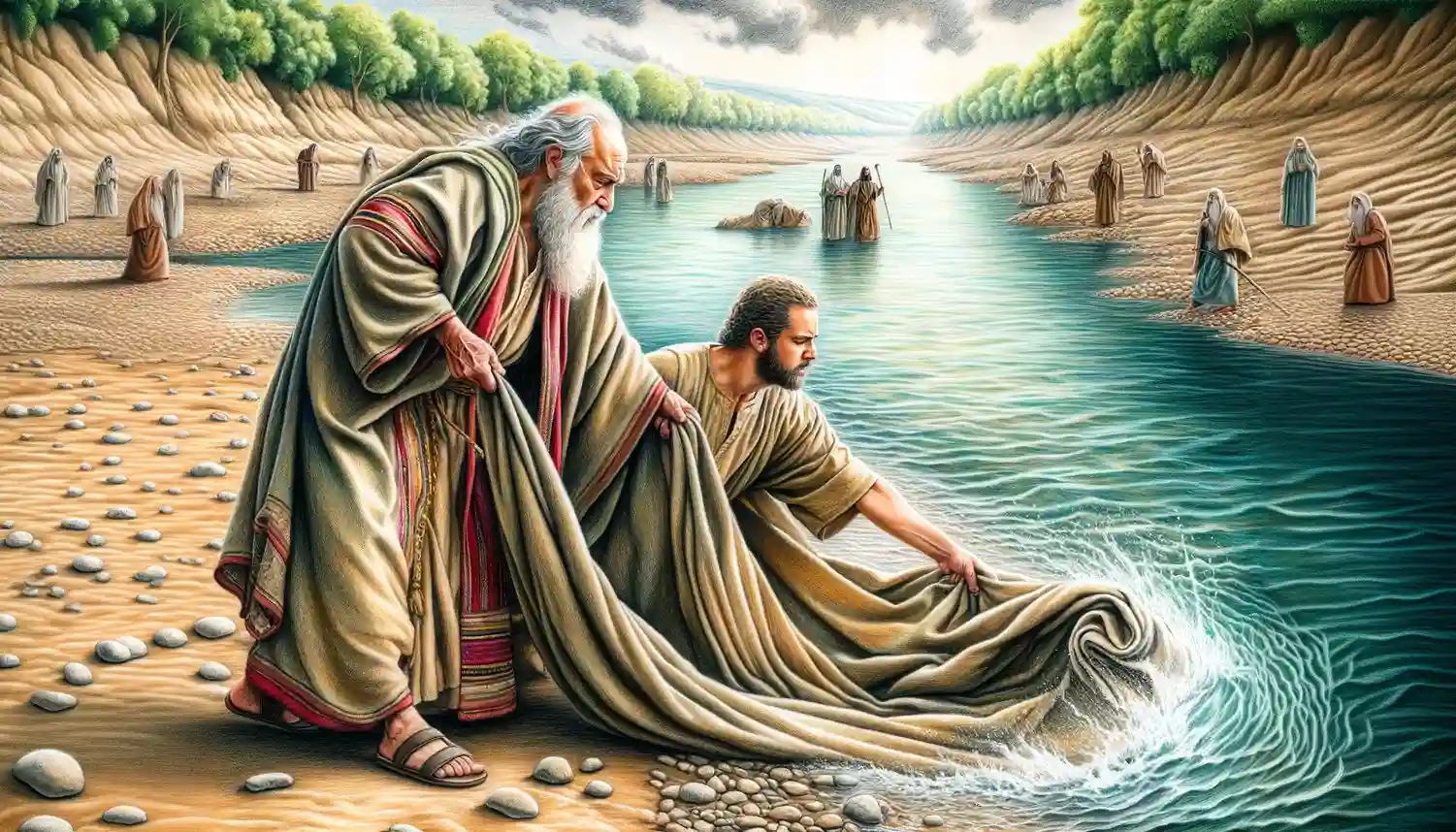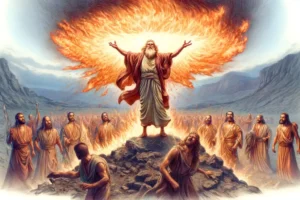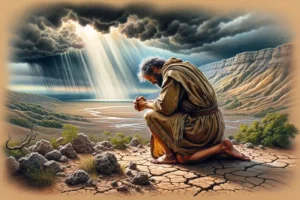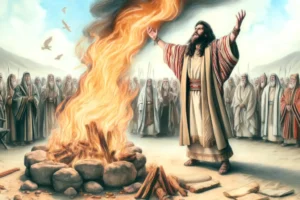
Parting of the Jordan River by Elijah
The Parting of the Jordan River by Elijah, as recounted in 2 Kings 2:8, is a significant biblical event that underscores the prophet’s divine empowerment and foreshadows the transition of his prophetic role to Elisha. Here are some quick facts about this event:
- Biblical Reference: The event is described in 2 Kings 2:8.
- The Cloak as a Symbol: Elijah uses his cloak, also known as a mantle, to strike the waters of the Jordan River, which then part to allow him and Elisha to cross on dry ground. The cloak symbolizes the authority and the prophetic office of Elijah.
- Miraculous Parting: Similar to Moses parting the Red Sea, this act of parting the Jordan River reinforces the motif of God’s prophets having control over nature as a sign of divine backing.
- Transition of Prophetic Authority: This event occurs just before Elijah is taken up to heaven in a whirlwind. The parting of the Jordan also serves as a public demonstration of Elijah’s prophetic power, which he is about to pass on to Elisha.
- Elisha’s Witness: Elisha, who witnesses this miracle, is being prepared to succeed Elijah. The parting of the river is significant for Elisha, as it confirms his mentor’s divine authority and prepares him for the double portion of Elijah’s spirit that he has requested.
- Symbolic Geography: The Jordan River holds deep spiritual significance in the biblical narrative, often representing transitions and new beginnings. Crossing the Jordan symbolizes entering a new phase of prophetic ministry under Elisha’s leadership.
The Parting of the Jordan River by Elijah, as described in 2 Kings 2:8, is a pivotal moment that encapsulates themes of divine authority, prophetic succession, and miraculous intervention. This event is rich in symbolism and theological significance, emphasizing the continuity and evolution of prophetic power within the biblical narrative. Here is a detailed analysis of this significant episode:
Context and Background
The parting of the Jordan River by Elijah occurs just before his dramatic ascent into heaven, witnessed by his successor, Elisha. This miracle serves as the final act in Elijah’s prophetic ministry, a ministry marked by confrontations with kings, miraculous provisions during a drought, and public challenges to idolatry. The Jordan itself is a symbolically charged location, having been the site where the Israelites, under Joshua’s leadership, entered the Promised Land. It represents a threshold, a place of transitions and new beginnings.
The Use of the Cloak
Elijah’s cloak, or mantle, is central to this narrative. When he rolls it up and strikes the water, the river parts, allowing him and Elisha to cross on dry ground. This cloak symbolizes Elijah’s authority and role as a prophet of God. The act of parting the Jordan with the cloak not only demonstrates divine approval of Elijah’s ministry but also foreshadows the transfer of this prophetic authority to Elisha. Later, as Elijah is taken into heaven, he leaves this mantle for Elisha, who picks it up and uses it in a similar manner, confirming his succession as a prophet.
Miraculous Parting and Biblical Echoes
The parting of the Jordan River echoes earlier biblical events, particularly the parting of the Red Sea by Moses. This parallel positions Elijah within the prophetic tradition of Moses, reinforcing his role as a leader and miracle worker empowered by God. Just as the parting of the Red Sea marked the beginning of a new era for the Israelites, the parting of the Jordan by Elijah marks the impending transition of prophetic leadership to Elisha.
Theological Implications
- Prophetic Authority: This event highlights the theme of prophetic authority bestowed by God, which is visibly demonstrated through control over natural elements. It underscores the idea that true prophets of God can wield divine power to enact God’s will.
- Divine Continuity: The seamless transition of power from Elijah to Elisha demonstrates God’s ongoing plan and care for His people. It reassures the community of believers that God’s purposes will continue, despite changes in human leadership.
- Spiritual Preparation: For Elisha, witnessing this miracle is crucial. It prepares him spiritually and psychologically for the responsibilities he will assume. This preparation is key to understanding that prophetic ministry involves both divine calling and tangible signs of divine empowerment.
Conclusion
In conclusion, the parting of the Jordan River by Elijah is not merely a display of prophetic power but a complex, symbol-laden event that speaks to the continuity of God’s work through His prophets. It reaffirms the prophetic mission in the face of change and transition and illustrates the profound relationship between divine power and prophetic authority. This event, therefore, serves as a theological and narrative bridge between the eras of Elijah and Elisha, reinforcing the enduring nature of God’s engagement with His people.



